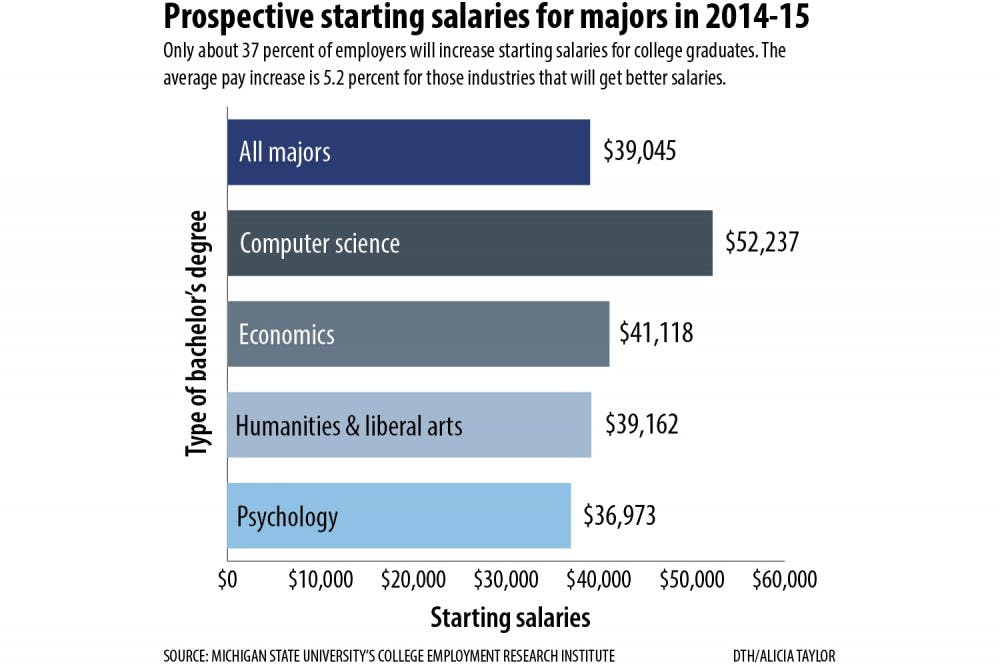Employee turnover — which allows for more job prospects for college graduates — and the baby-boomer generation are both contributing factors for higher starting salaries, he said.
In a survey conducted by the institute, 71 percent of people currently working feel they have to work until their 80s or until they die — stemming from the fact that most retired Americans will have $1,200 or less in monthly social security benefits.
“Twenty years ago, we thought there would be a talent shortage — that we would need more college graduates than we could produce,” Gardner said.
But of the boomers that do retire, only 60 percent will be replaced in their jobs.
“Between 20 years ago and now, we’ve basically changed the entire structure of the economy,” Gardner said.
The U.S. has eliminated a lot of jobs by way of technology and outsourcing, creating greater competition among college graduates and more incentive for employers to increase their starting salaries.
The report also discussed disparities in growth among job sectors, with manufacturing, finance and insurance, business and scientific services boasting the highest starting salary growth. Government, education and utilities will have the lowest growth.
Gardner said it remains to be seen how starting salaries might impact wage pressure in the job market. But if growth were to reach 10 to 30 percent increases, the college labor market could feasibly push all salaries up, he said.
Oppositely, he said employers might be more likely to switch to lower cost labor, which essentially means degree substitution — an associate’s degree instead of a bachelor’s degree, for example.
Jeff Sackaroff, associate director of UNC’s University Career Services, said in addition to reports like these, Career Services relies heavily on a comprehensive student survey conducted every year.
“Since 2008, our salaries have continued to be above average across all majors when compared nationally,” he said, adding that the number of employers coming to campus increases every year.
He said national studies can be difficult to interpret for individual universities.
To get the day's news and headlines in your inbox each morning, sign up for our email newsletters.
“We’re not solely an engineering school, we’re not solely a business school,” he said. “When one sector might not be doing as well, there are other sectors that create opportunities for students.”
state@dailytarheel.com



